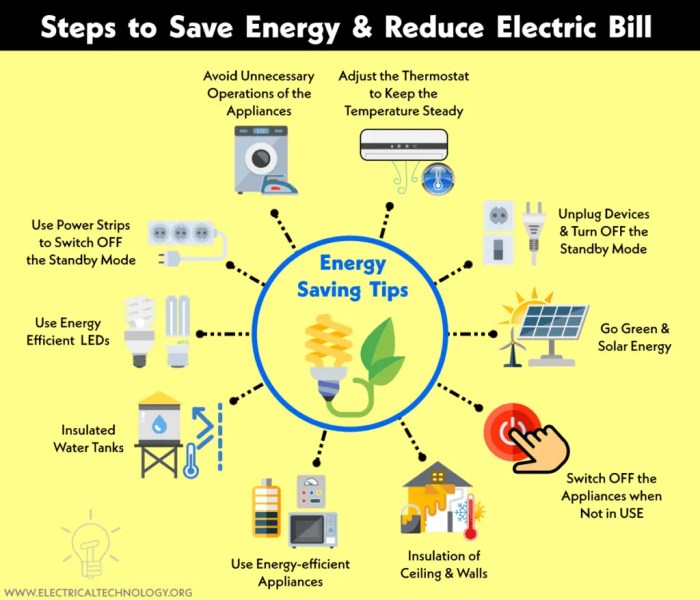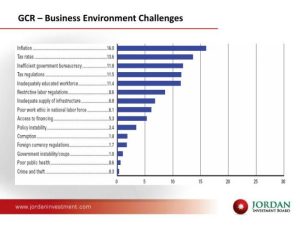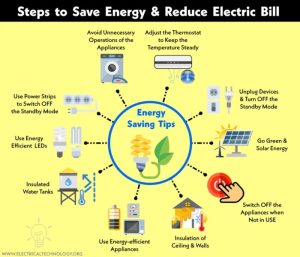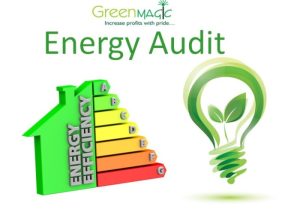
Get ready to revolutionize your business with our Energy-saving tips for businesses! From cutting-edge strategies to practical advice, we’ve got you covered. Let’s dive in and discover how you can save the planet while boosting your bottom line.
Are you ready to take your business to the next level of sustainability and profitability?
Energy-saving Tips for Businesses

In today’s competitive market, businesses are constantly looking for ways to reduce costs and increase efficiency. One effective way to achieve this is by implementing energy-saving measures in commercial buildings. Not only does this help the environment, but it also leads to significant cost savings in the long run.
Effective Strategies for Reducing Energy Consumption
- Upgrade to energy-efficient lighting such as LED bulbs, which consume less electricity and have a longer lifespan.
- Invest in programmable thermostats to regulate heating and cooling systems based on occupancy and usage patterns.
- Seal windows, doors, and other openings to prevent air leaks and improve insulation, reducing the workload on HVAC systems.
Energy-efficient Technologies for Businesses
- Solar panels: Generate clean and renewable energy to power your business operations.
- Smart meters: Monitor energy usage in real-time and identify areas for improvement.
- Energy management systems: Control and optimize energy consumption across different systems and devices in the building.
Benefits of Investing in Energy-saving Measures
- Lower utility bills: By reducing energy consumption, businesses can save money on monthly energy expenses.
- Enhanced reputation: Demonstrating a commitment to sustainability can attract environmentally-conscious customers and partners.
- Compliance with regulations: Many governments offer incentives and rebates for businesses that adopt energy-saving practices.
Chemicals and Allied Products
In the chemicals and allied products industry, businesses can optimize energy usage by implementing various strategies to reduce waste and improve efficiency. Energy-intensive processes in chemical production can have a significant environmental impact, making it crucial for companies to prioritize energy-saving initiatives.
Optimizing Energy Usage
- Implementing energy-efficient technologies and equipment, such as LED lighting, high-efficiency boilers, and heat recovery systems.
- Regular maintenance and tuning of equipment to ensure optimal performance and energy efficiency.
- Utilizing process optimization techniques to minimize energy consumption during manufacturing processes.
- Investing in renewable energy sources, such as solar or wind power, to reduce reliance on fossil fuels.
Role of Energy Management Systems
- Energy management systems help businesses track and analyze energy usage data to identify areas for improvement.
- By monitoring energy consumption in real-time, businesses can implement proactive measures to reduce waste and optimize usage.
- Automating energy controls and settings to ensure efficient operation of equipment and facilities.
- Setting energy-saving targets and benchmarks to measure the effectiveness of energy management strategies.
Environmental Impact of Energy-Intensive Processes
- Energy-intensive processes in chemical production can result in high greenhouse gas emissions and air pollution.
- Reducing energy waste and improving efficiency can help lower carbon footprints and minimize environmental impact.
- Implementing sustainable practices, such as recycling and waste minimization, can further reduce the environmental footprint of chemical manufacturing.
- Adopting cleaner production methods and technologies to promote environmental sustainability in the industry.
Construction and Maintenance
When it comes to energy efficiency in construction and maintenance, there are several key practices that construction companies can adopt to reduce energy consumption and ensure sustainable operations.
Incorporating Energy-Efficient Practices in Building Design
- Utilize passive solar design techniques to maximize natural light and heat in the building.
- Opt for high-performance windows and insulation to improve energy efficiency.
- Install energy-efficient HVAC systems and lighting fixtures to reduce electricity consumption.
- Consider using renewable energy sources like solar panels or geothermal heating systems.
Importance of Regular Maintenance for Peak Efficiency
Regular maintenance is crucial to ensure that energy systems operate at peak efficiency and prevent unnecessary energy wastage. Here are some tips to consider:
- Schedule routine inspections and maintenance for HVAC systems to optimize performance.
- Check and seal any air leaks in the building to prevent energy loss.
- Clean or replace air filters regularly to improve air quality and system efficiency.
- Monitor energy usage and implement energy management systems to track and optimize consumption.
Selecting Sustainable Materials for Construction Projects
When selecting materials for construction projects, choosing sustainable options can significantly reduce energy consumption and environmental impact. Consider the following:
- Opt for recycled or reclaimed materials to minimize waste and carbon footprint.
- Choose materials with high thermal mass to improve insulation and reduce heating/cooling needs.
- Use locally sourced materials to support the local economy and reduce transportation emissions.
- Prioritize eco-friendly certifications like LEED or Energy Star for sustainable construction practices.
Consumer Goods and Services
Consumer goods and services businesses play a crucial role in promoting energy conservation to customers. By offering energy-efficient products and highlighting sustainability efforts, these businesses can make a significant impact on reducing energy consumption and greenhouse gas emissions.
Energy-Saving Products for Consumers
- LED Light Bulbs: LED bulbs use significantly less energy and last longer than traditional incandescent bulbs.
- Energy-Efficient Appliances: Energy Star-rated appliances consume less electricity, saving both energy and money for consumers.
- Solar-Powered Chargers: Devices like solar-powered phone chargers allow consumers to harness renewable energy for their everyday needs.
- Smart Thermostats: Smart thermostats help regulate heating and cooling in homes, optimizing energy usage and reducing waste.
Marketing Strategies for Sustainability
Companies in consumer goods and services can use various marketing strategies to highlight their commitment to sustainability and energy conservation:
- Green Packaging: Using eco-friendly packaging materials and emphasizing recyclability can attract environmentally conscious consumers.
- Eco-friendly Certifications: Obtaining certifications such as Energy Star or Forest Stewardship Council (FSC) can showcase a company’s dedication to sustainability.
- Social Media Campaigns: Engaging customers through social media platforms with content related to energy-saving tips and sustainable practices can raise awareness and promote brand loyalty.
- Product Labeling: Clearly labeling energy-efficient features on products helps consumers make informed choices and encourages them to prioritize eco-friendly options.
Business Energy

Businesses rely on various sources of energy to operate efficiently, but the choices they make can have a significant impact on the environment. It is crucial for businesses to explore sustainable energy options to reduce their carbon footprint and contribute to a greener future.
Traditional vs. Renewable Energy Sources
When it comes to energy sources, businesses have traditionally relied on fossil fuels such as coal, oil, and natural gas. While these sources are abundant and relatively inexpensive, they contribute to air pollution, greenhouse gas emissions, and climate change. On the other hand, renewable energy sources like solar, wind, and hydropower offer clean and sustainable alternatives that can help businesses reduce their environmental impact.
- Renewable energy sources are becoming increasingly cost-effective and accessible for businesses of all sizes.
- Investing in renewable energy can not only help businesses lower their carbon footprint but also save money in the long run through reduced energy costs.
- By transitioning to renewable energy sources, businesses can demonstrate their commitment to sustainability and attract environmentally conscious customers.
Role of Energy Audits
Energy audits play a crucial role in helping businesses identify areas where energy savings can be achieved. By assessing energy consumption patterns, equipment efficiency, and building insulation, businesses can pinpoint opportunities to optimize their energy use and reduce waste.
Conducting regular energy audits can lead to significant cost savings and environmental benefits for businesses in the long term.
Business Environment
Creating a culture of sustainability within a business can lead to significant energy savings by encouraging employees to be more conscious of their energy usage, promoting the use of energy-efficient technologies, and implementing policies that prioritize energy conservation.
Regulatory Requirements for Energy Efficiency
Businesses need to comply with various regulatory requirements regarding energy efficiency to ensure they are operating in an environmentally responsible manner. These requirements may include obtaining energy efficiency certifications, conducting energy audits, and meeting specific energy consumption targets set by regulatory bodies.
Challenges in Transitioning to Energy-Efficient Operations
Transitioning to a more energy-efficient operation can pose several challenges for businesses. Some of these challenges include the initial high costs of implementing energy-efficient technologies, resistance to change from employees accustomed to traditional practices, and the need for specialized knowledge and expertise to optimize energy usage effectively. Overcoming these challenges requires a commitment to sustainability, proper planning, and investment in training and resources.
Wrap-Up
In conclusion, implementing energy-saving measures in your business is not only beneficial for the environment but also for your finances. Start making changes today and watch your company thrive while reducing its carbon footprint.
Common Queries
How can I convince my employees to adopt energy-saving practices?
Lead by example and educate your team on the benefits of energy conservation. Encourage them to participate in energy-saving initiatives and reward their efforts.
What are some affordable energy-efficient technologies that small businesses can implement?
LED lighting, smart thermostats, and energy-efficient appliances are cost-effective options for small businesses looking to reduce energy consumption.
How can I measure the impact of energy-saving measures on my business’s bottom line?
Conduct regular energy audits to track your energy usage and cost savings over time. Compare your current expenses with past data to see the difference.





